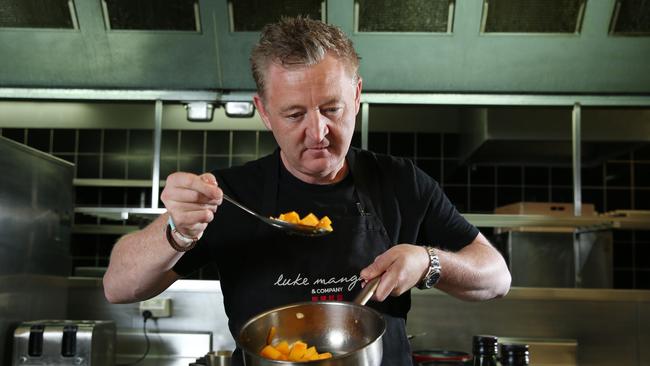Finding staff now the biggest small business challenge

One of those important issues is the national skills shortage we are facing. The impact of our skills shortage is being felt by many industries and the ramifications are spread throughout the economy.
Job vacancies across the nation are at record highs with the Australian Bureau of Statistics recording 423,500 unfilled positions, a 6.9 per cent increase since November last year.
I have experienced the devastating impact of this shortage for the past few years, but my recent experience in opening Luke’s Kitchen at the new Kimpton Margot Hotel in Sydney shows me the worst is yet to come unless the government acts now.
Despite having a new restaurant, and most Covid restrictions lifted, I am unable to open Luke’s Kitchen to full capacity because I don’t have the staff to service it.
The situation is the same at Glass in the Sydney Hilton. Pre-Covid, my amazing 240-seat restaurant was humming seven days a week for breakfast, lunch and dinner. Today we can operate only two lunches and three dinners a week because we cannot find staff – and I know many of my colleagues are in the same boat.
We have no chefs, no servers, no bartenders, and don’t even get me started on supply chain issues because of staff shortages.
This is a huge problem as many of these businesses are paying the same rent and the same overheads but trading at only 50 per cent capacity. This is not a recipe that will work.
Last month we placed an advertisement for waitstaff, chefs, managers and baristas, and we got a huge response – in fact, more than 100 applicants. But every single application was from an overseas worker trying to source a temporary work visa – not one was from an Australian applicant.
As I’ve said countless times before, my colleagues and I want to employ Australians, but the fact of the matter is that they just aren’t applying for the jobs.
Perhaps we don’t have enough Australians with the skills to fill the vacancies or, and as I suspect, there just aren’t enough Australians willing to fill these jobs.
Every industry is suffering from a shortage of workers to fill the roles needed to keep businesses and the economy moving forward.
Just this week I read about a barbershop owner in Sydney who has had the same job ad running consistently for three years but hasn’t been able to attract many applicants. She wanted to expand her business and employ Australian apprentices but could not do so in this environment.
Politicians talk about how small business is the backbone of the Australian economy, but when hardworking small-business owners ask for help with this issue the government and opposition are nowhere to be seen.
This is evidenced by the fact the federal election campaign is well under way yet neither major party has outlined their plan to address the national skills shortage and get businesses working again.
We’ve seen both sides trade political blows and make embarrassing political gaffes, but there is no mention of how they are going to upskill hardworking Australians or of a plan to fill the growing number of job vacancies.
For the past two years I’ve been calling on all levels of government to work together to address this growing crisis, but it appears my pleas have gone unanswered.
Why won’t the government or opposition sit down with small-business owners, the ones at the coalface every day, the ones keeping the Australian economy running, and provide solutions to the problems we are facing?
Any solution is going to take time to implement and fix our national skills shortage so they need to act now.
Whether it’s working with industry to train Australians in the industries facing these shortages, or expediting the process for temporary overseas workers, we need to start working on these solutions now if we want to stem the bleeding.
I’m offering the government and the opposition a face-to-face meeting, between now and election day, with key hospitality and tourism leaders so we can fix this issue. I’ll open the doors at any of my venues for leaders and decision-makers who want to work with industry.
If any of them are interested, they can get in touch with me at info@lukemangan.com.
Luke Mangan is a Sydney chef and restaurateur.



There are some really big issues facing our nation – from national security to cost of living – and there is no doubt this is a difficult time. Our economy has been bruised by the pandemic and, as we look to recover, we must address the fundamental issues in our way.